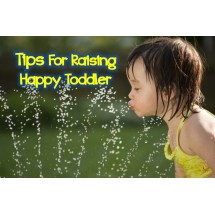
Toddlerhood and temper tantrums seem almost synonymous, don’t they? We miss those times when all our precious baby did was gaze up lovingly at us and coo incessantly. Suddenly, it seems, that little darling has transformed into a feisty little master or missy who wants things done exactly to their liking now, now, NOW!
I remember when café-hopping with my then-six-month-old used to be a piece of cake, literally. I would savour my slice of tiramisu and a cup of coffee, enjoying chats with my girl friends while the kiddo napped in the carrier or pram, or was content to nibble on his fingers and toes.
As I type this, my eldest son is the grand old age of 38 months, and my littlest is coming to 18 months, and such café indulgences are extremely few and far between these days. Almost a non-event, actually.
I like how parenting author Sheila Wray Gregoire puts it: “Children tend to throw temper tantrums in public for two reasons: they are deliberately disobedient, or they are bored out of their minds.” I would add a third reason to the list – they are too exhausted to self-regulate.
I’ve definitely found this to be true of my own experience with my two boys. The two places my two little fellows are most likely to melt down or misbehave are when
1. We go shopping (they get bored)
2. We have a long day out (they are dog-tired and ‘act up’). On trips to the playground, Mcdonald’s or the beach, they are virtually perfect “angels” – until it’s time to leave, that is.
But bring them to a department store, or within the four walls of a beautifully quaint café, and they pull out all the stops in their naughtiness, cheekiness, and the occasional full-out-scream-and-cry-fest.
He could be tired.
A little bit of reflection and observation will stand you in good stead. If your child is reacting after a long day out or having skipped his nap, he could just be exhausted, and any tantrum is simply an outlet for his overwhelming emotions. If so, surely any kind of disciplining would be unfair and ineffective in curbing the behavior, because your child would still be tired, and grumpy, and immovable.
Instead, try to demonstrate empathy to your child. Use touch, gentle words and repetition to help him understand where you are coming from, and to understand what he needs. Put your agenda aside for the moment, and help him put words to what he is feeling. Instead of fighting for your will to be done, seek to find a middle ground which both of you can “live with”, and work towards that.
Sometimes, our children may simply not be getting enough sleep on a regular basis. If you have a poor napper or a chronically early riser, that could be a contributing factor to your toddler’s tantrums. According to BabyCenter, the average toddler needs about 12 hours of sleep each day (nap time plus night sleep). Is your child getting the rest that he needs? If not, what can you do about it?
He could be bored.
Whenever I bring my sons to shop for clothes or groceries – anything, really – I am prepared to let go of my expectations quite a bit. In the ideal world, my sons would hold my hand and walk by my side quietly while I browsed. They would not tug me in all directions, scream nonsensically and guffaw crazily, or make the clothes’ racks their new playground. All of the above – been there, experienced that.
The truth is, shopping is an extremely boring task for any young child, unless it’s
1. Shopping for toys
2. Shopping for sweets
Anything else, and your child is bound to get bored pretty sharpish, although sometimes girls may have higher thresholds than boys.

Instead of putting your child on a leash to rein in his energy, try to engage him meaningfully, and prevent him from getting bored. Here are some tips to prevent the behavioural meltdowns!
- Turn every trip into a talking point. Involve him in the process of deciding which shop to go to first, and talk about what you see in the store, what is going into your cart, what you need to get next, etc.
- Make up games to play. Like counting the number of watermelons in the fruit trolley, or guessing which brand of spaghetti is the most expensive. For preschoolers, you can even integrate some fun learning along the way – counting (help me pick three apples), colours (pass me a yellow pepper) or words (what does this label say?).
Talking to your child and engaging him can make a huge difference in your child’s general mood for the hour, or even the day! It might take a bit of effort on your part, especially if you don’t have the habit of making conversation with your kids just yet, but it’s really a great way to engage him, help him learn about the world, and let him know how much his thoughts and feelings matter to you.
Communication builds trust and lays a foundation of security, which means your child will be less likely to throw a fit because he is trying to get your attention. He already knows your care. The more you interact with your child, the more likely they will be content to behave better, and abide by your guidelines and expectations, both at home and outside.
Intentional, rebellious disobedience does happen, and is a normal part of any childhood – but such instances are often a rare occurrence, especially if the child is attended to and feels heard on a regular basis. In a nutshell, you can help to prevent temper tantrums before they occur by making sure your child is getting the rest he needs and allowing her to be involved in whatever you do.
By Dorothea Chow






